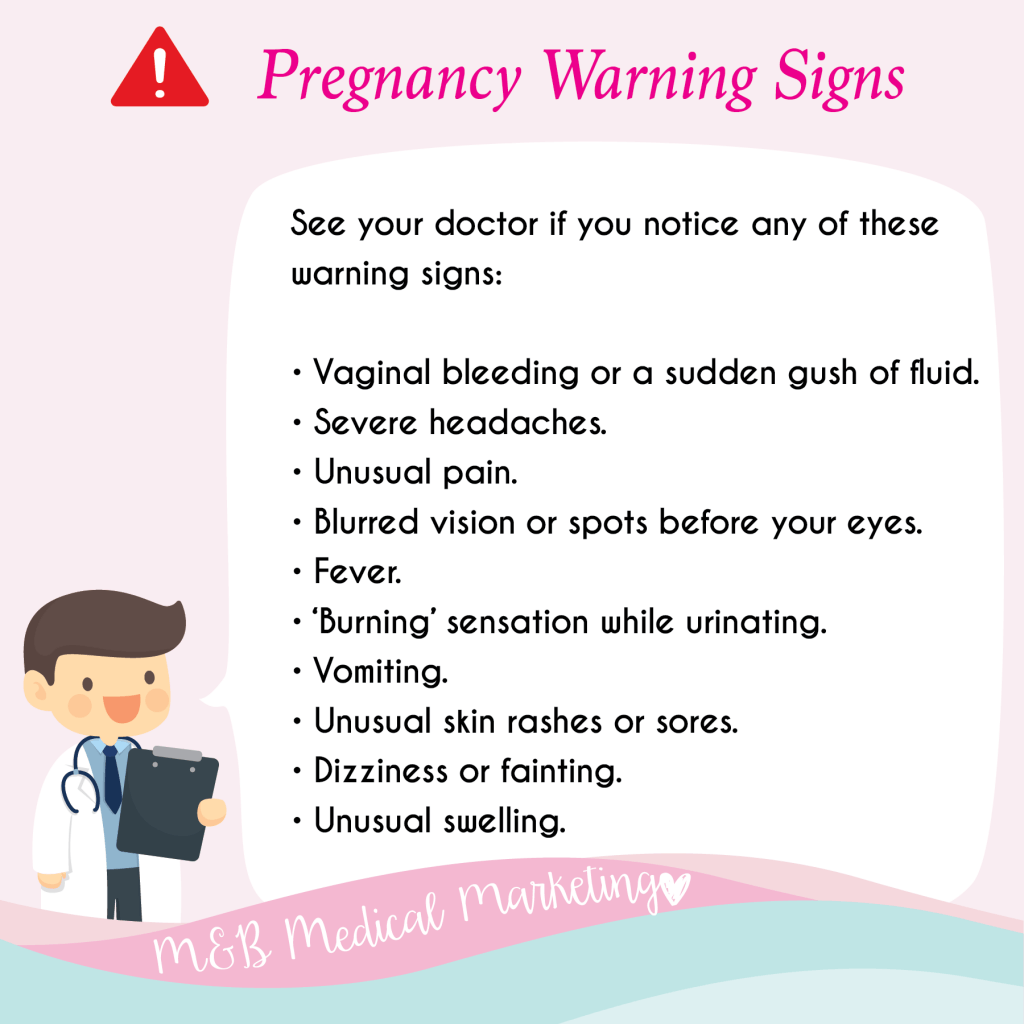
Warning Signs of Pregnancy: A Comprehensive Guide
Pregnancy is a transformative experience that brings immense joy and anticipation. However, it is crucial to be aware of certain warning signs that may indicate potential complications. Early detection and prompt medical attention can significantly improve outcomes for both the mother and the baby.
Common Warning Signs of Pregnancy
1. Vaginal Bleeding
Vaginal bleeding during pregnancy can be a sign of miscarriage, ectopic pregnancy, or placental abruption. Miscarriage is the loss of a pregnancy before 20 weeks of gestation, while an ectopic pregnancy occurs when the fertilized egg implants outside the uterus. Placental abruption is a condition where the placenta separates from the uterine wall prematurely.
2. Severe Abdominal Pain
Intense or persistent abdominal pain, especially in the lower abdomen, can indicate an ectopic pregnancy, placental abruption, or uterine rupture. Uterine rupture is a rare but life-threatening condition where the uterus tears open during labor or delivery.
3. Sudden Gush of Fluid
A sudden gush of fluid from the vagina may be a sign of premature rupture of membranes (PROM). PROM occurs when the amniotic sac that surrounds the baby ruptures before the onset of labor. It can increase the risk of infection for both the mother and the baby.
4. Persistent Nausea and Vomiting
Severe or persistent nausea and vomiting, known as hyperemesis gravidarum, can lead to dehydration and electrolyte imbalances. It can also be a sign of a molar pregnancy, a rare condition where the placenta develops abnormally.
5. High Blood Pressure
High blood pressure during pregnancy can be a sign of preeclampsia, a serious condition that can lead to seizures, stroke, or organ damage. Preeclampsia typically develops after 20 weeks of gestation and is characterized by high blood pressure and protein in the urine.
6. Sudden Weight Gain
Rapid or excessive weight gain during pregnancy can be a sign of preeclampsia or gestational diabetes. Gestational diabetes is a type of diabetes that develops during pregnancy and can increase the risk of complications for both the mother and the baby.
7. Blurred Vision or Headaches
Blurred vision or persistent headaches can be signs of preeclampsia or gestational hypertension. Gestational hypertension is high blood pressure that develops during pregnancy but does not progress to preeclampsia.
8. Decreased Fetal Movement
A decrease in fetal movement can be a sign of fetal distress or placental insufficiency. Placental insufficiency occurs when the placenta is unable to provide adequate oxygen and nutrients to the baby.
9. Preterm Labor
Preterm labor is labor that begins before 37 weeks of gestation. It can lead to premature birth, which is associated with increased health risks for the baby.
10. Fever
A fever during pregnancy can be a sign of infection, such as a urinary tract infection or chorioamnionitis. Chorioamnionitis is an infection of the amniotic sac and the surrounding membranes.
11. Chills
Chills during pregnancy can be a sign of infection or a reaction to certain medications.
12. Dizziness or Fainting
Dizziness or fainting during pregnancy can be a sign of anemia, low blood pressure, or dehydration.
13. Swelling
Swelling in the hands, feet, and face can be a sign of preeclampsia or gestational hypertension.
14. Itching
Severe or persistent itching during pregnancy can be a sign of cholestasis of pregnancy, a liver condition that can increase the risk of premature birth.
15. Changes in Urine
Changes in urine, such as cloudy or foul-smelling urine, can be a sign of a urinary tract infection.
16. Shortness of Breath
Shortness of breath during pregnancy can be a sign of anemia, heart disease, or preeclampsia.
17. Confusion or Disorientation
Confusion or disorientation during pregnancy can be a sign of preeclampsia or other serious conditions.
When to Seek Medical Attention
It is important to seek medical attention immediately if you experience any of the following warning signs during pregnancy:
- Vaginal bleeding
- Severe abdominal pain
- Sudden gush of fluid
- Persistent nausea and vomiting
- High blood pressure
- Sudden weight gain
- Blurred vision or headaches
- Decreased fetal movement
- Preterm labor
- Fever
- Chills
- Dizziness or fainting
- Swelling
- Itching
- Changes in urine
- Shortness of breath
- Confusion or disorientation
Conclusion
Early detection and prompt medical attention are crucial for managing warning signs during pregnancy. By being aware of these signs and seeking medical help when necessary, you can significantly improve the chances of a healthy pregnancy and a safe delivery. Remember, it is always better to err on the side of caution and seek professional advice if you have any concerns about your pregnancy.